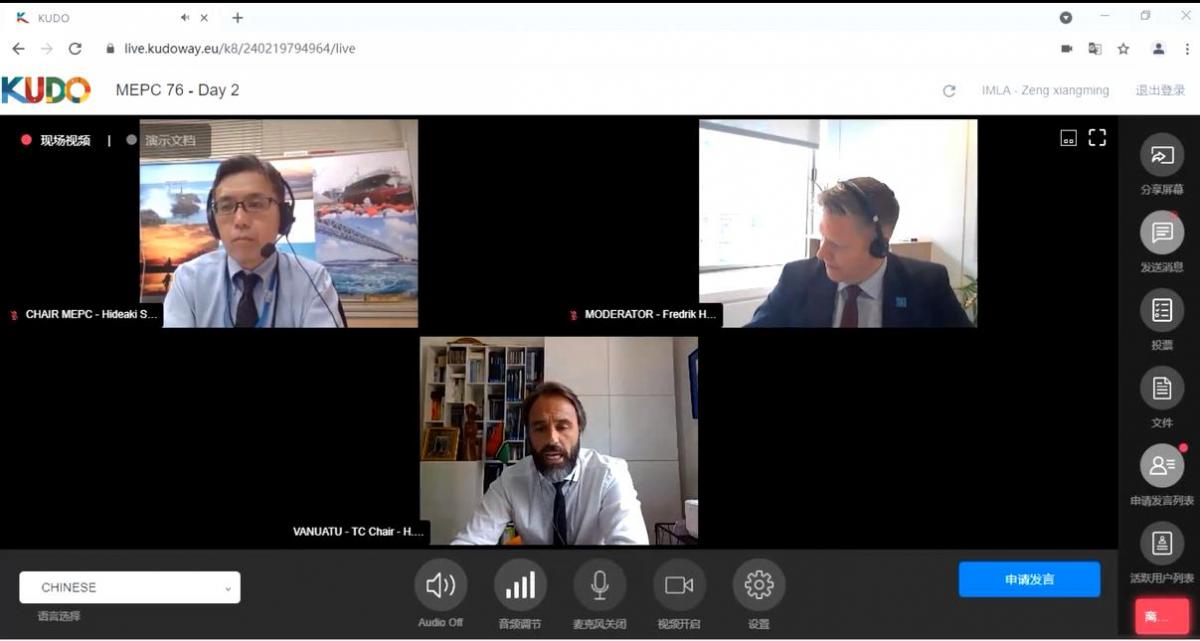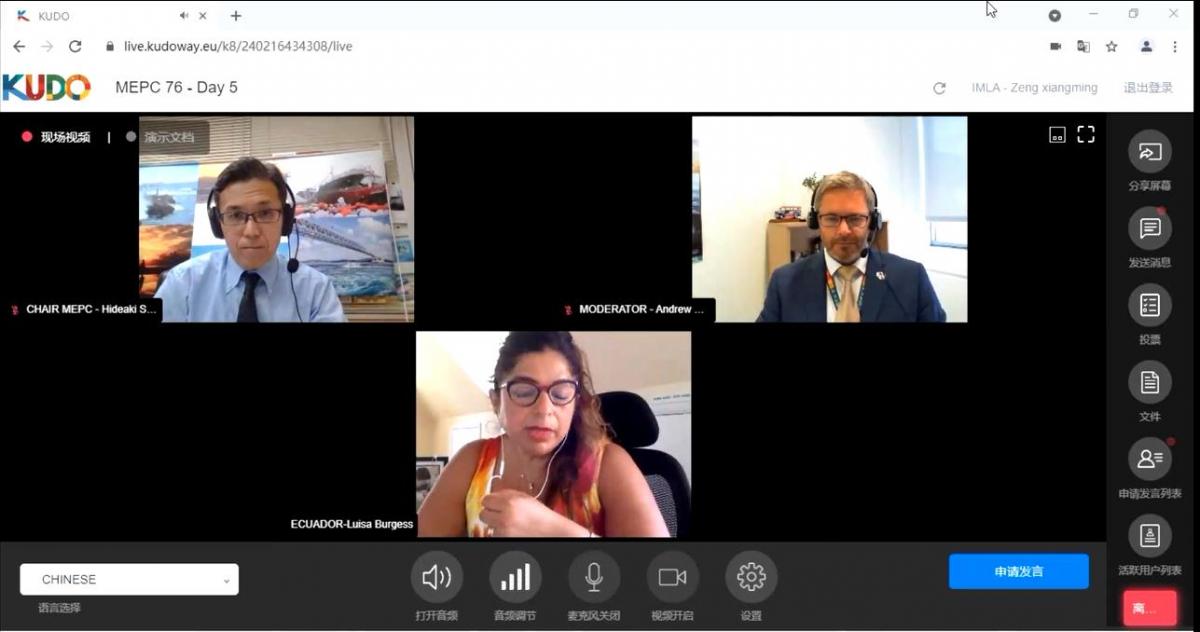IMLA at IMO MEPC76
The 76th session of the IMO’s Marine Environment Protection Committee (MEPC) was held remotely from 10 to 17 June 2021. The main topics discussed include actions to tackle climate change, the adoption of short-term measures to cut carbon intensity of ships and proposals on the development of mid- and long-term measures and supporting work arrangements. The meeting was chaired by Mr. Hideaki Saito (Japan) and the Vice-Chair Mr. Harry Conway (Liberia). IMLA was presented by members Professor Zhou Feng and Professor Xiangming Zeng.
The main outcome of MEPC 76 is the adoption of amendments including:
- Amendments to MARPOL Annex VI including EEXI and CII.
- Amendments to MARPOL Annex I to prohibit the use and carriage for use as fuel of heavy fuel oil (HFO) by ships in Arctic waters
- Amendments to MARPOL Annex I and IV concerning the exemption of unmanned non-self-propelled (UNSP) barges from survey and certification requirements
- Amendments to the AFS Convention to include controls on the biocide cybutryne
The MEPC76 considered, with a view to adoption the amendments to the MARPOL convention that requires ships for a combined technical and an operational approach to reduce their carbon intensity. This is in line with the ambition of the Initial IMO GHG Strategy, which aims to reduce carbon intensity of international shipping by 40% by 2030, compared to 2008.
The MEPC76 discussed a number of submissions on how to progress the next stages of IMO’s work to cut GHG emissions form ships, leading to the revision of the initial GHG strategy in 2023.
The MEPC76 also considered a number of proposals from Member States and the industry on the concrete way forward to make progress with candidate mid- and long-term measures to incentivize the move away from fossil fuels to low-and zero-carbon fuels to achieve decarbonization of international shipping.
The adoption of the above amendments will have profound impacts on the technology, management and administration of shipping industry. Maritime education and training should keep close pace with these changes in order to provide qualified talents to meet the challenges of international shipping.


